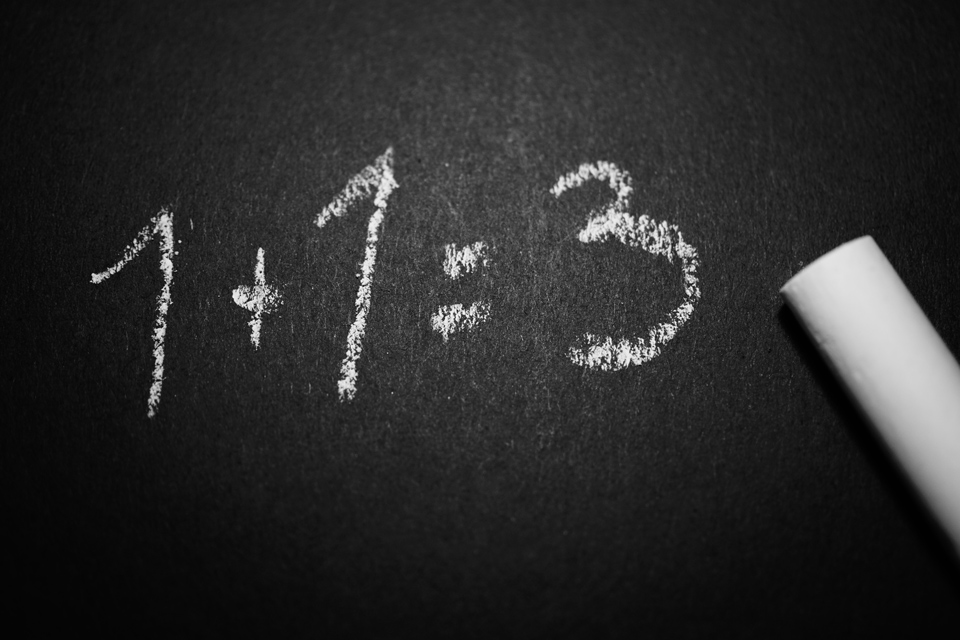Have you ever been scared stiff of a spider in the bathroom and screamed as loud as you can? Then did you look around and see your children staring at you? Then wonder why they develop a phobia for spiders?! The same can be true for Maths. So many of us say “Aw I can’t do maths” or “I’m bad at maths.” We wear it like a badge of honour. It’s accepted throughout western society that it’s okay to be bad at maths, who cares anyway right? Like when am I going to use trigonometry in my life?!
So who should care about being bad at maths? EVERYONE! If you said the same thing about reading and writing, people might look at you funny. Why is it not okay to admit if you can’t read or write? But socially acceptable to say you can’t do maths?
We use maths skills all the time, without even knowing it! When we shop (online or in person at a store), when we cook food, keeping track of how much money we spend over a week, when we guess how long certain activities will take, the list goes on and on. Too many of us rely on calculators to perform simple tasks, and what happens if you’re bad at maths? You can be ripped off! So many times I’ve been at a checkout and the cashier may have charged me twice for something. I have an idea in my head how much the total should come to (say I’m buying 3 times of clothing), so when I’m charged more than expected I can question why the total is more than expected. If I were bad at maths, how would I know something wasn’t right with the bill total?
We are living in an age where data is everywhere, it’s all around us! Our lives are becoming increasingly digitised, social media for example is HUGE, and growing! Being able to make sense of this world full of data requires basic maths skills, as well as developing statistical skills, which involves being able to describe and analyse data.
People should see maths and statistics as a set of languages essential to live. Statistics in particular can help you predict the outcome of an event, using data from past events, and it can show you interesting patterns about all sorts of things! Which age groups are more likely to use Instagram for example? Do people watch live TV anymore? Which age group are more likely to watch Netflix and Prime TV? When is the supermarket more likely to be quiet?
People who can use numbers and make sense of data are super valuable. Spotting patterns and trends in data means mega bucks for companies and governments all over the world! If you have these skills, not only will it help in life, if taken to the next level, it can mean jobs with ace pay!
Data is all around us and comes in many different forms, not just numerical. It’s the scaffold for everything we know about everything. Becoming comfortable with numbers will help build confidence, and help people to overcome their anxieties with maths and statistics.
So next time you find yourself saying out loud “I’m bad at maths” think about the impact it could have on people around you, and also see it as a challenge – wouldn’t it make you feel so much better if you could say “ I can do maths!”
Skills Builder

About the Author: Professor Rhys Christopher Jones is the Associate Dean of Education at the Faculty of Health and Medical Sciences, at the University of Surrey. Prior to this, he was based in the Department of Statistics at the University of Auckland. Over his career he has taught a variety of subjects, at both undergraduate and postgraduate level, which include statistics, quantitative methods, and mathematics for science. He has also taught a variety of science-based subjects in FE colleges, which include GCSE, BTEC, Access and A levels. His primary research contributions are in the areas of curriculum development and the role of context in statistics education. Rhys’s research interests also focus on mathematical and statistical anxiety, helping to inform strategies to engage and motivate people in these subjects. Rhys is a former trustee of Potential Plus UK.
This article was originally written for the NZ Association of Gifted Children






